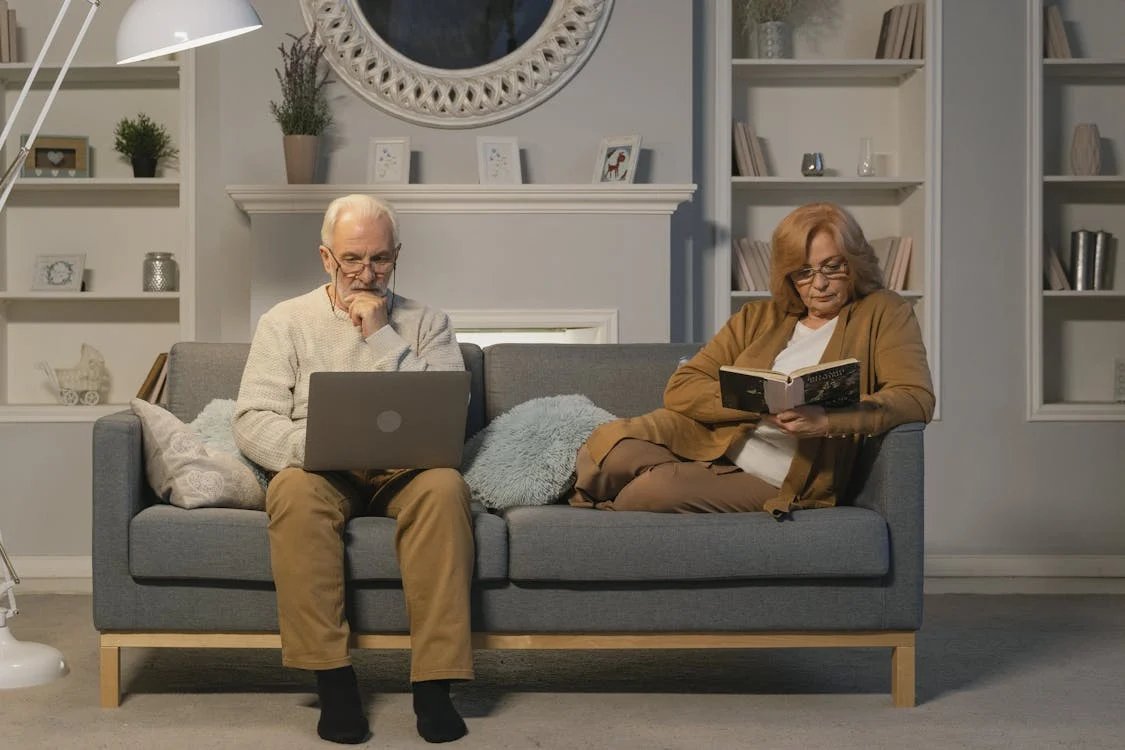Going through a breakup can be an emotionally challenging experience, and it’s not uncommon to feel a range of intense emotions during this time. Depression is a common side effect of breakup. If you’re feeling depressed after a breakup, it’s important to understand that what you’re going through is normal and that there are ways to cope with these emotions. In this post, we’ll explore the reasons why you might be feeling depressed after a breakup and offer some strategies to help you navigate this difficult time.
1. Loss and Grief
A breakup signifies the loss of a significant relationship, and just like any other loss, it can trigger a grieving process. You might find yourself mourning the loss of the future you had envisioned with your partner, the companionship you enjoyed, or the emotional support they provided. This sense of loss and grief can contribute to feelings of depression.
Feeling depressed after break up is natural. It’s normal to mourn the loss of the relationship, future plans, and emotional support. The grieving process involves acknowledging and accepting these feelings of loss, allowing yourself to experience the pain, and gradually finding ways to heal. Remember that it takes time to navigate through the stages of grief, and seeking support from loved ones or professionals can be beneficial during this challenging period.
2. Change and Uncertainty
Breakups often lead to major life changes and a sense of uncertainty about the future. You may have to adjust to living alone, reestablishing your routines, or facing financial and logistical challenges. The uncertainty and upheaval can make you feel overwhelmed, anxious, and depressed.
Adjusting to life without your partner, establishing new routines, and facing logistical challenges can be overwhelming. The uncertainty about the future can contribute to feelings of anxiety and depression. This can lead to feeling depressed after break up.
It’s important to recognize that change is a natural part of life, and while it may be challenging, it also presents opportunities for personal growth. Embracing the unknown, seeking support, and focusing on self-care can help navigate through this period of change and uncertainty.
3. Self-Esteem and Identity
A breakup can have a significant impact on your self-esteem and sense of identity. You might question your self-worth, wonder what went wrong, or feel rejected. These feelings can lead to a loss of confidence and contribute to depressive symptoms.
It’s crucial to remember that a breakup doesn’t define your worth as a person. Take time to reflect on your strengths, engage in self-care activities, and surround yourself with supportive people who appreciate and value you. Rebuilding self-esteem and rediscovering your identity is a gradual process that involves self-reflection, self-compassion, and personal growth. Feeling depressed after break up is natural but you have to deal with it.
4. Loneliness and Isolation
After a breakup, you might feel a profound sense of loneliness, especially if you were used to spending a significant amount of time with your partner. The loss of their companionship and the social support they provided can leave you feeling isolated, which can further exacerbate feelings of depression.
It’s important to remember that you are not alone in these feelings. Reach out to friends, family, or support groups to combat loneliness. Engaging in social activities, connecting with others who share similar experiences, and seeking professional help if needed can help alleviate feelings of isolation and provide a supportive network during this challenging time. This will help you get over the feeling depressed after break up.
5. Negative Thought Patterns
It’s common to experience negative thoughts and rumination after a breakup. You might find yourself replaying the relationship’s end, blaming yourself, or engaging in self-critical thinking. These negative thought patterns can contribute to depressive feelings and make it difficult to move forward.
Navigating through thoughts can be a complex process. It involves observing, organizing, and connecting ideas within the mind. Thoughts often emerge spontaneously, influenced by experiences, emotions, and external stimuli. The challenge lies in managing and directing these thoughts towards desired outcomes. By cultivating self-awareness, practicing mindfulness, and employing cognitive strategies like reframing and logical reasoning, individuals can enhance their ability to navigate through thoughts effectively, promoting clarity, focus, and constructive decision-making.
6. Physical Symptoms
After a breakup, individuals may experience a range of physical symptoms due to the emotional distress they are going through.
The body’s stress response can be activated, leading to increased heart rate, shallow breathing, and heightened sensitivity to pain. It is important to prioritize self-care and seek support to manage these physical symptoms during this challenging time.
Depression can manifest not only as emotional distress but also as physical symptoms. You might experience changes in appetite, sleep disturbances, fatigue, and a lack of motivation. These physical symptoms can further compound your feelings of depression.
7. Coping Strategies
While feeling depressed after break up is understandable, it’s essential to develop healthy coping strategies to help you navigate through this challenging time. Here are some strategies that may help:
8. Allow Yourself to Grieve
You can give time to yourself by grieving for your loss. Give yourself permission to experience the sadness and pain associated with the breakup. This will allow you to heal and you will be able to come up in life and move ahead.
9. Seek Support
You should get in touch with friends, family and your support base Sharing your feelings with others who have gone through similar experiences can be incredibly comforting. Consider seeking professional help if your depression persists or worsens over time.
10. Take Care of Yourself
Focus on self-care activities that promote your physical and emotional well-being. Engage in regular exercise, eat a balanced diet, get enough sleep, and practice relaxation techniques such as deep breathing or meditation. You can improve your life by taking care of yourself.
11. Challenge Negative Thoughts
Be mindful of negative thought patterns and challenge them with more positive and realistic thinking. Instead of blaming yourself for the breakup, remind yourself that relationships involve two people, and both parties contribute to their success or failure.
12. Engage in Meaningful Activities
Engage in purposeful activities. Engaging in hobbies, volunteering, or pursuing personal goals can help distract you from the pain of the breakup and provide a sense of fulfillment.
13. Set Realistic Expectations
You have to be patient as forgetting anyone takes time. Understand that the process of moving on from a breakup is not linear, and you may have good and bad days. Set realistic expectations and allow yourself the time and space to heal.
14. Consider Professional Help
If your feelings of depression persist or become overwhelming, consider seeking professional help. A therapist or counsellor can provide guidance, support, and tools to help you navigate through the challenges of a breakup.
In conclusion, feeling depressed after a breakup is a common experience. It’s important to understand that these feelings are valid and that there are strategies to help you cope. By allowing yourself to grieve, seeking support, practicing self-care, challenging negative thoughts, engaging in meaningful activities, setting realistic expectations, and considering professional help, you can gradually navigate through the healing process and find hope for the future. Remember, you don’t have to go through it alone, and there are people who care and want to help you through this difficult time.




